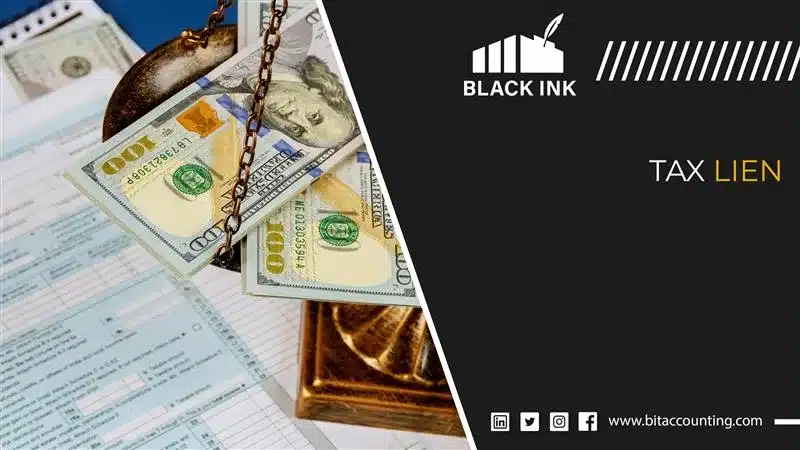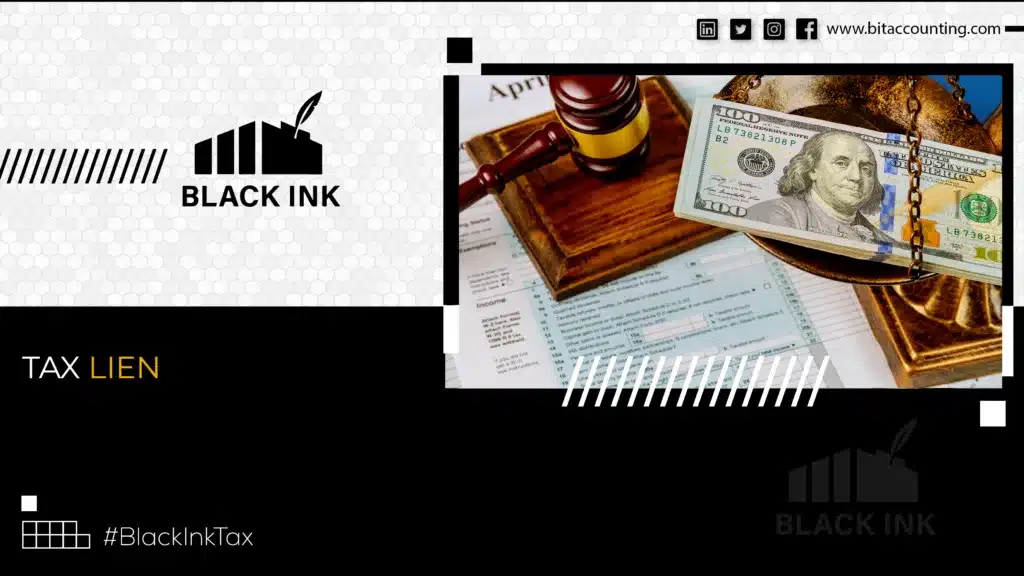
Table of Contents
Understanding the Tax Lien: How to Resolve IRS Claim
A tax lien allows the government to claim your property if you don’t pay your taxes. It grants the Internal Revenue Service (IRS) or your locality the ability to take possession of your property, including your home, vehicle, or business, until the debt is paid. It doesn’t imply they will take your property, but it also means that you’re in serious financial trouble.
This guide will take you through what a tax lien is, the process of how it occurs, the impact it has on you, and the steps to correct it. You will also discover its connection to property tax, bankruptcy, and your credit score.
What Is A Tax Lien?
A tax lien is a tool the government uses to guarantee tax payment by people. The IRS will submit a public record called the Notice of Federal Tax Lien when someone who owes back taxes fails to pay. This notifies everyone—banks, creditors, and potential purchasers—that the government legally claims the property of the person who owes back taxes.
It liens all your assets—including real estate, receivables, and property you acquire under an active lien. It’s like a caution flag in the financial realm saying, ‘This person owes the IRS.’
What Is the Process of Tax Lien?
The process starts with the IRS figuring out how much you owe. They then send a bill called a Notice and Demand for Payment. If you don’t pay taxes right away, the IRS can file the lien.
Here’s how the process works:
- Debt is confirmed by the IRS.
- IRS sends you a notice.
- If you don’t respond, they file the lien.
- It becomes public record.
- It affects your credit and limits your ability to borrow money or sell your property.
A tax lien can turn into a tax levy, which means the government may take your property to pay the tax. This is a much more serious action.
How a Tax Lien Affects You?
A tax lien can affect your personal finances in many ways:
- It lowers your credit score.
- It makes it hard to get loans, refinancing, or even a mortgage.
- It affects your business ownership if you own a company.
- You might not be able to sell or move your property without paying off the lien.
It can also scare off potential employers or private sector partners if they check your credit history. In some cases, it could even affect your ability to rent a home.
What the IRS Can Do?
The IRS has strong powers under United States law. If you don’t take care of a tax lien, they can:
- Take your wages or bank accounts.
- Foreclose your home.
- Seize your assets and income.
- Sell your property through a governmental auction.
They can even put a lien on personal property like cars or valuable items. Under law and economics, their goal is not to punish, but to collect what’s owed to support the country’s economy and public finance systems.
Getting Out of a Tax Lien
The good news? You can get out of a tax lien. Here are your options:
- Pay your debt in full: Once you pay, the IRS releases the lien within 30 days.
- Set up a payment plan: You can make monthly payments to the IRS.
- Apply for a withdrawal: If you qualify, the IRS can remove the lien from public record.
- File for bankruptcy: While bankruptcy may not erase your tax debt, in some cases it can lead to a bankruptcy discharge of certain types of taxes.
- Get help from a tax expert or lawyer: Someone who knows business law, property law, or financial law can guide you.
Make sure your financial management is strong, and always keep track of your balance sheet, debts and credits, and payments.

How Much You’ll Have to Pay to Redeem Your Home After a D.C. Tax Sale?
In Washington, D.C., if your home is sold in a tax sale, you still have a chance to get it back. This is called “redemption.” To redeem your home:
- You must pay the full property tax debt, plus interest, penalties, fees, and any legal costs.
- This can add up fast — some homeowners find they owe much more than the original tax.
Redemption time is limited. If you don’t act fast, your home could be gone for good.
Can Someone Take Your Property by Paying the District of Columbia Property Taxes?
Yes, in D.C., someone can buy your tax debt at an auction. They don’t get your property right away, but they gain the right to take it if you don’t pay them back.
This is part of real property law and is meant to help cities recover unpaid taxes. The new owner can get the deed and take possession if you don’t redeem your home in time. This is legal under civil law (common law) and is common in urban, rural, and regional economics.
What Happens to My Mortgage in a Tax Sale?
If your home is sold in a tax sale, your mortgage doesn’t disappear. The lender still has a claim. Usually, they will pay off the tax lien to protect their loan and then add that cost to your debt.
In some cases, if the property value is low, the lender might walk away, leaving you with both a lost home and a damaged credit score. This is where default (finance) and foreclosure overlap.
Conclusion
Dealing with a tax lien can feel overwhelming, but it doesn’t have to ruin your life. Whether you’re dealing with property law, finance, or IRS troubles, knowing your options can help you move forward. Remember:
- Stay informed.
- Act early.
- Get professional help when needed.
At Bit Accounting, we help individuals and businesses handle their taxation, resolve debt, and protect their property. Our team is ready to help you avoid financial problems and keep your business or property secure. Reach out to us for expert guidance.
FAQs
- Will a tax lien show on my credit report?
While it may not appear directly, lenders and others can still find it in public records.
- Can I sell my house with a tax lien on it?
Yes, but you’ll need to pay off the lien with the money from the sale.
- What’s the difference between a tax lien and a tax levy?
A lien is a claim; a levy is when the IRS takes your property.
- How do I check if I have a tax lien?
Contact the IRS or check your county recorder’s office for public records.
- Is bankruptcy a solution for removing tax liens?
Sometimes, but it depends on the kind of tax debt and your situation. Talk to a lawyer.
GET FREE QUOTE FOR ALL OF OUR SERVICES
Black Ink will send you a free analysis of your current state and what would be the cost of managing either a separate accounting and bookkeeping services or a complete solution across New York, USA. Do get in touch and we will be happy to consult you with our bookkeeping services in NY, New York, USA.
